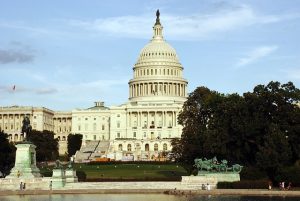The Rise of Taragon Opulon AI in Financial Markets
Modern artificial intelligence investing tool Taragon Opulon has sparked a passionate discussion in the political and financial spheres. Integrating artificial intelligence technology into financial markets has generated both enthusiasm and anxiety as it develops at an unheard-of rate. Advocates of artificial intelligence-powered products like Taragon Opulon contend that they offer unmatched insights and forecasting ability, therefore transforming investment methods. Critics counter and Taragon Opulon AI investment application opinions contend that such technology raises ethical questions and possible hazards.
AI-Driven Investing: Promise and Risk
Taragon Opulon finds trends and patterns possibly invisible to human analysts using sophisticated algorithms to examine enormous volumes of data. This can lead to more educated and precise investing judgements.
AI-powered trading algorithms can do trades at rapid speed and profit on transient market possibilities.
While this could provide large gains, it also runs the danger of unstable markets.
Based on individual investor profiles and risk tolerance, personalized financial advice driven by artificial intelligence can offer. This would enable people to reach their long-term objectives and make wiser financial decisions.
AI’s Political Consequences for Finance
Here are they:
Rising Inequality
A few AI-driven investment companies’ concentration of wealth and power could aggravate already present social inequalities.
Market Manipulation
Artificial intelligence systems could be applied to control markets, therefore benefiting some investors and upsetting the financial system.
Job Displacement
Many financial chores automated could result in industry job losses.
An Appeal for Control and Moral Thoughtfulness
Policymakers and authorities have to cooperate to create suitable rules and monitoring if we are to maximize the advantages of AI-driven finance while reducing its risks. Important factors include:
Transparency
Transparency and explainability of AI algorithms will enable examination and responsibility.
Fairness
Regardless of their socioeconomic level, AI systems ought to be made to treat every investor equally.
Security
Strong cybersecurity initiatives have to be followed to guard against data leaks and cyberattacks.
Ethical AI
Developers of ethical artificial intelligence should follow moral guidelines so that their works serve the advantage of society.
Summary
In terms of the development of finance, Taragon Opulon and related artificial intelligence investment projects mark a major advance. Still, one should approach this technology carefully and forward-looking. Carefully weighing the possible advantages and hazards will help us to use artificial intelligence to produce a more fair and rich future.
Decentralized Finance: A Political Game Changer?

Decentralized finance (DeFi) is already shaking up traditional finance systems. Unlike centralized banking, which relies on intermediaries, DeFi uses blockchain technology to provide services without needing middlemen like banks. This shift is not just a technological breakthrough—it could have political consequences that reach far beyond the financial sector. By removing centralized control of financial systems, DeFi could potentially redistribute power and shift the balance between individuals and governments.
Aave, one of the leading DeFi platforms, allows users to lend and borrow crypto assets without needing a traditional financial institution. This is significant because it allows individuals to manage their finances independently of banks. You can find out more about how Aave operates at Aave. But the implications go far beyond lending and borrowing—it could be a global game changer for political systems.
How DeFi Could Democratize Finance
One of DeFi’s key promises is democratization. Traditionally, access to financial services has been controlled by large institutions, and in many cases, these services are not available to everyone. DeFi platforms like Aave remove these barriers by allowing anyone with internet access to participate. This can help reduce financial exclusion, especially in areas where access to banking is limited or controlled by authoritarian regimes.
By decentralizing finance, individuals could gain more control over their economic futures. People in countries with unstable or corrupt governments could store and manage their assets without fear of seizure or inflation wiping out their savings. This could be particularly impactful in developing nations, where a lack of banking infrastructure often leaves citizens at the mercy of corrupt officials or unstable economies.
Potential Political Repercussions
While DeFi promises increased financial freedom, it also poses significant challenges for governments. Currently, governments control much of the financial system through central banks and monetary policy. DeFi removes this control by eliminating intermediaries, potentially diminishing the government’s ability to enforce regulations, collect taxes, or control the money supply.
There are several ways that governments might respond to DeFi:
- Regulation: Governments might try to regulate DeFi platforms like Aave to retain some level of control. This could include legal requirements for platforms to report user data or limit certain activities. However, regulating decentralized systems is inherently challenging due to their global, borderless nature.
- Banning or Limiting Access: In more extreme cases, governments may try to ban DeFi platforms altogether. China’s crackdown on cryptocurrency exchanges is one example. However, enforcing such bans could prove difficult because DeFi operates on a decentralized network.
- Adoption of DeFi Principles: On the other hand, governments may recognize the benefits of DeFi and attempt to integrate decentralized principles into their own systems. Central banks could create their own digital currencies (CBDCs) to provide an alternative to DeFi while maintaining some centralized control.
The Future of Governance in a DeFi World
The rise of decentralized finance could also lead to a shift in how political systems operate. When financial systems are decentralized, governments may lose one of their main tools for enforcing authority. This could lead to a weakening of centralized governments and the rise of more localized or decentralized political structures. In this scenario, communities might take on more responsibility for managing their own resources and creating systems of governance that are more responsive to their needs.
However, this scenario also raises questions about accountability. If governments lose control of financial systems, who is responsible for ensuring that these systems are used ethically and fairly? Decentralization offers freedom but comes with risks—such as the potential for fraud, hacking, and abuse. A key challenge moving forward is ensuring that decentralized systems remain transparent and accountable.
Governments’ Possible Adaptation Strategies
Some governments may see decentralized finance as an opportunity rather than a threat. For example, they might create new policies that embrace the transparency and efficiency offered by blockchain technology. Governments could even leverage DeFi to provide financial services to their citizens in a more efficient and cost-effective way.
Here’s how governments might adapt:
- Building Their Own Blockchain Systems: Countries could create state-backed blockchain systems that mimic DeFi structures while maintaining regulatory oversight.
- Collaborating with DeFi Platforms: Governments may also consider partnerships with established DeFi platforms like Aave, integrating DeFi features into public services or allowing state-backed assets to be traded on these platforms.
- Taxation Mechanisms: As the adoption of DeFi grows, governments will likely explore innovative ways to collect taxes through blockchain-based smart contracts, ensuring that decentralized systems still contribute to public finances.
READ ALSO: The Impact of Politics on Financial Trading Strategies
Conclusion: A New Era of Financial and Political Power
Decentralized finance is not just a trend in the crypto world—it can potentially change political and economic power fabric. By democratizing access to financial services and removing the need for centralized institutions, DeFi could empower individuals and weaken government control over monetary policy. Whether governments respond with regulation, bans, or adaptation will likely determine how this political shift unfolds.
One thing is certain: DeFi is pushing the boundaries of what is possible in finance and governance, and its impact will be felt far beyond the financial sector.
Harris and Trump’s Proposed Budgets Analyzed by Penn Wharton
 Presidential candidates Kamala Harris and Donald Trump are trying to win voters by disputing the viability of the other’s economic agenda for generating long term economic growth. Yet according to the analytical reports of the Penn Wharton Budget Model (PWBM), Trump’s proposed budget will likely increase the country’s budget deficits by $5.8 trillion over the next decade, which is five (5) times more than the projected deficit of VP Harris’ proposed budget.
Presidential candidates Kamala Harris and Donald Trump are trying to win voters by disputing the viability of the other’s economic agenda for generating long term economic growth. Yet according to the analytical reports of the Penn Wharton Budget Model (PWBM), Trump’s proposed budget will likely increase the country’s budget deficits by $5.8 trillion over the next decade, which is five (5) times more than the projected deficit of VP Harris’ proposed budget.
PWBM by the way is a non-partisan, research initiative of the University of Pennsylvania to provide transparent, accurate and accessible economic analysis of major fiscal budget projections. The purpose of which is to aid major US legislation although not for recommendation purposes.
Pen Wharton’s Comparative Analysis of Trump’s Proposed Budget Vs. Harris’ Budget Proposal
 Trump’s 2025 program intends to fund the government’s economic platform by imposing 60% tariffs on all Chinese imports and 10% on all imports regardless of origin. VP Harris on the other hand, proposes raising corporate taxes to 28% from the current 21%. The increase though needs Congressional approval before it can be implemented.
Trump’s 2025 program intends to fund the government’s economic platform by imposing 60% tariffs on all Chinese imports and 10% on all imports regardless of origin. VP Harris on the other hand, proposes raising corporate taxes to 28% from the current 21%. The increase though needs Congressional approval before it can be implemented.
Whereas, Trump’s plan of raising tariffs can be implemented through issues of Executive Orders in the same way he did during his 2017-2020 tenure. However, economists are warning that a repeat of the former president’s hard line tariff rules will likely reignite price increases of consumer goods; notwithstanding that inflation has only begun to recede.
YouTube Likes and the Intersection of Finance and Politics: Driving Public Policy

The intersection of finance and politics on YouTube has become increasingly significant, with likes playing a crucial role in driving public policy discussions. Videos covering both financial and political topics gain popularity through audience engagement, particularly likes, which can signal public interest and influence lawmakers.
The Role of YouTube in the Intersection of Financial and Political Spheres
YouTube has become a platform where financial and political issues intersect, allowing for in-depth discussions and debates that can influence public policy. Political videos get more attention with YouTube Likes.
- Comprehensive Discussions: Videos that cover both finance and politics provide a holistic view, helping viewers understand the interconnectedness of these topics.
- Policy Advocacy: Influencers use their platforms to advocate for specific policies, driving public discourse and potential legislative action.
- Public Engagement: High engagement levels, including likes, indicate public interest and support for certain policy discussions.
Analysis of Popular Videos That Address Financial Policies and Their Political Implications
Popular YouTube videos that discuss financial policies often highlight their political implications, gaining traction and influencing public opinion through likes.
- Tax Policies: Videos explaining tax reforms and their impact on different socio-economic groups often receive high engagement, reflecting public concern and interest.
- Economic Stimulus: Discussions on government stimulus packages and their effectiveness can garner significant likes, indicating widespread interest and approval.
- Regulatory Changes: Content on financial regulations, such as changes in banking laws or investment rules, often attracts viewers who seek to understand how these policies affect them personally.
How Likes Can Act as a Barometer for Public Sentiment on Financial Legislation
Likes on YouTube videos can provide a clear indication of public sentiment regarding various financial policies and legislation.
- Public Approval: High likes suggest strong public support for the policies discussed in the video.
- Engagement Trends: Tracking likes over time can reveal trends in public opinion and interest in specific legislative issues.
- Influence on Lawmakers: Lawmakers may consider videos with high likes as a reflection of their constituents’ views, potentially influencing their stance on legislation.
The Impact of Influential YouTube Channels on Financial Policy Debates
Influential YouTube channels can drive financial policy debates by leveraging their platform’s reach and the engagement metrics, particularly likes.
- Thought Leadership: Channels with a strong following can position themselves as thought leaders, shaping the narrative around financial policies.
- Public Mobilization: High likes can indicate successful mobilization of public opinion, encouraging viewers to engage in advocacy or activism.
- Legislative Impact: Videos that gain traction can prompt discussions in legislative bodies, highlighting the role of public opinion in shaping policy decisions.
READ ALSO: Social Media, TikTok, and the Global Economy: Trends and Challenges
Conclusion
The intersection of finance and politics on YouTube, driven by likes, plays a vital role in shaping public policy. By analyzing engagement metrics, particularly likes, we can gain insights into public sentiment and the influence of YouTube content on legislative debates. For influencers and policymakers, understanding the power of likes can enhance their ability to drive meaningful discussions and advocate for effective policies.
Education Policy on Human Capital Development
The importance of education policy in promoting human capital growth must be considered in the context of the constantly shifting environment of global economies. More is needed to pass on information; education is also a primary factor in the expansion of the economy, the development of new ideas, and the advancement of society. Individuals continue to seek ways to maximize their potential while embracing education’s transformative power. Tools such as a gold calculator serve as invaluable resources, assisting people in effectively evaluating the worth of their possessions and making informed financial decisions. Financial literacy, fostered through education, allows individuals to make informed choices about their resources, contributing to their human capital’s overall development. Just as education will enable individuals to think critically and analytically, financial literacy equips them with the skills to manage their finances effectively and navigate the complexities of the modern economy.
Government Initiatives to Increase Access to Education
Access to quality education is the cornerstone of human capital development. Governments worldwide have recognized the importance of ensuring equitable access to education for all individuals, irrespective of their socio-economic backgrounds. Initiatives such as scholarships, subsidies, and affirmative action policies have been executed to break down barriers to education.
By expanding educational opportunities and reducing financial constraints, these initiatives empower individuals to realize their full potential and contribute meaningfully to society.
Human Capital Development
Human capital pertains to a populace’s combined expertise, understanding, and competencies obtained through schooling, instruction, and practice. Investing in human capital development is essential for boosting efficiency, encouraging creativity, and supporting sustained economic advancement. Educational strategies are crucial in nurturing human capital by furnishing people with the necessary means and support to succeed in a dynamically evolving society. These policies advocate for continuous learning and competency enhancement, empowering individuals with the flexibility and resilience to maneuver through intricate economic landscapes.
Impact on Economic Growth
The link between education policy and economic growth is undeniable. A well-educated workforce not only enhances productivity but also stimulates innovation and entrepreneurship. Studies have consistently shown that countries with higher levels of education tend to experience higher economic growth and prosperity rates. By investing in education, governments lay the foundation for sustainable development and create opportunities for socio-economic advancement. 
Education policy catalyzes economic transformation, driving inclusive growth and reducing income inequality. As we navigate the complexities of the 21st-century economy, investing in education remains paramount. By prioritizing education policy, policymakers can empower individuals, foster invention, and build a brighter future for future generations.




